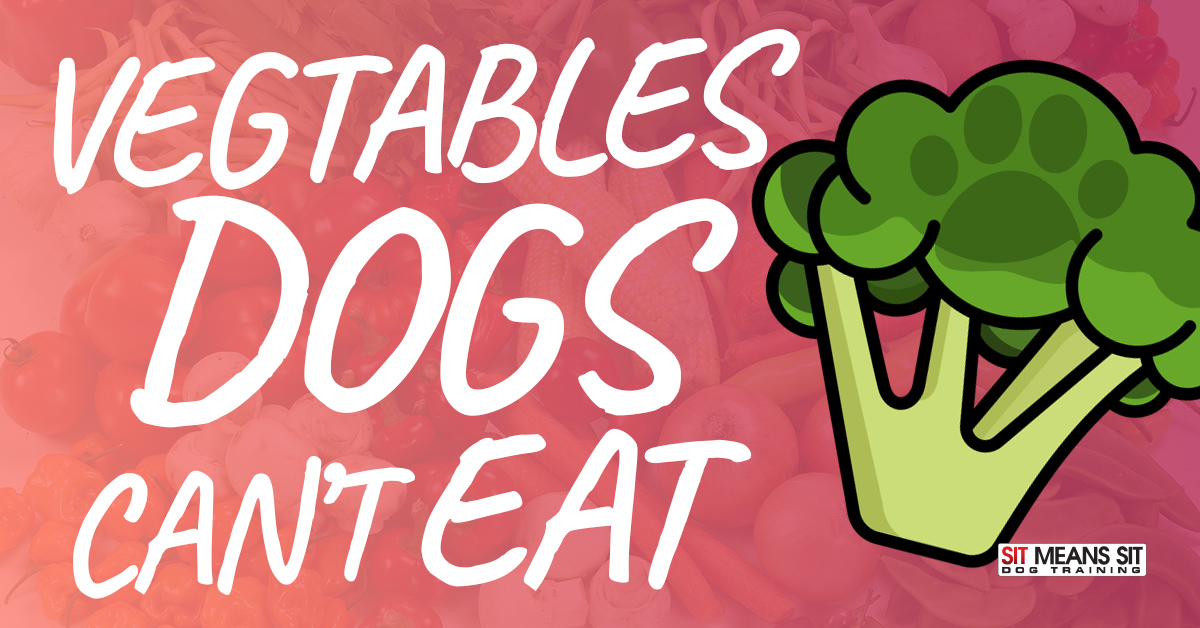
Vegetables Dogs Can’t Eat
Like humans, dogs need more than just meat in their diet to ensure they get the proper balance of nutrients and vitamins. Some vegetables are safe for dogs and can be very beneficial. However, some vegetables contain chemicals that do not settle well with dog’s system, and can even lead to toxic poisoning and death. We have created a guide to help you distinguish which veggies your pup should not eat.
Vegetables Dogs Can’t Eat
Asparagus
Raw asparagus can be a choking hazard and is difficult to digest. Additionally, it can cause GI upset, including gas, vomiting, or diarrhea. If you choose to feed your dog asparagus, be sure it is lightly cooked (steaming or grilling is best). ** If you grow asparagus, note that the fern part of the plant is considered toxic to canines.
Mushrooms
Some mushrooms are incredibly toxic to dogs, though not all. Store-bought mushrooms are considered safe for dogs to eat and have several health benefits. But it is best to avoid wild-mushrooms unless you are 100% sure they are non-toxic.
Onions
All types of onions contain an alkaloid, N-propyl disulfide, which is toxic to dogs. Additionally, species like leeks, garlic, and chives contain the same alkaloid making them equally dangerous to dogs. All parts of these plants are poisonous, even if they are cooked.
Brussel Sprouts
Though not toxic, Brussel Sprouts can cause digestive upset, primarily in the form of gas and bloating. However, if given in small amounts, Brussel Sprouts are healthy and are an excellent choice for dogs with weight issues.
Tomatoes
Ripe tomatoes are safe, but they are more acidic, which can cause GI upset. Green tomatoes will cause significant digestive health issues, including vomiting and diarrhea.
Potatoes
Cooked potatoes can be good for dogs and are often found in commercial food or treats. However, raw potatoes have higher solanine levels, making them a poor choice for your dog.
Avocados
Avocados contain a fungicidal toxic, persin5, which can cause health issues in dogs, including death.
Signs of Poisoning:
- Change in pulse, increased or weak
- Staggering
- Anemia
- Increased respiratory rate
- Lethargy
- Pale gums
- Dark red-brown colored urine
Toxicity in dogs may cause oxidative damage to red blood cells, even causing them to rupture. Some dog breeds are more sensitive to alkaloid than other. The size and breed of the dog are two factors.
We hope this guide helps you with any future dog diet questions! If you have any recipes that involve healthy vegetables for dogs, we would love to hear from you.
